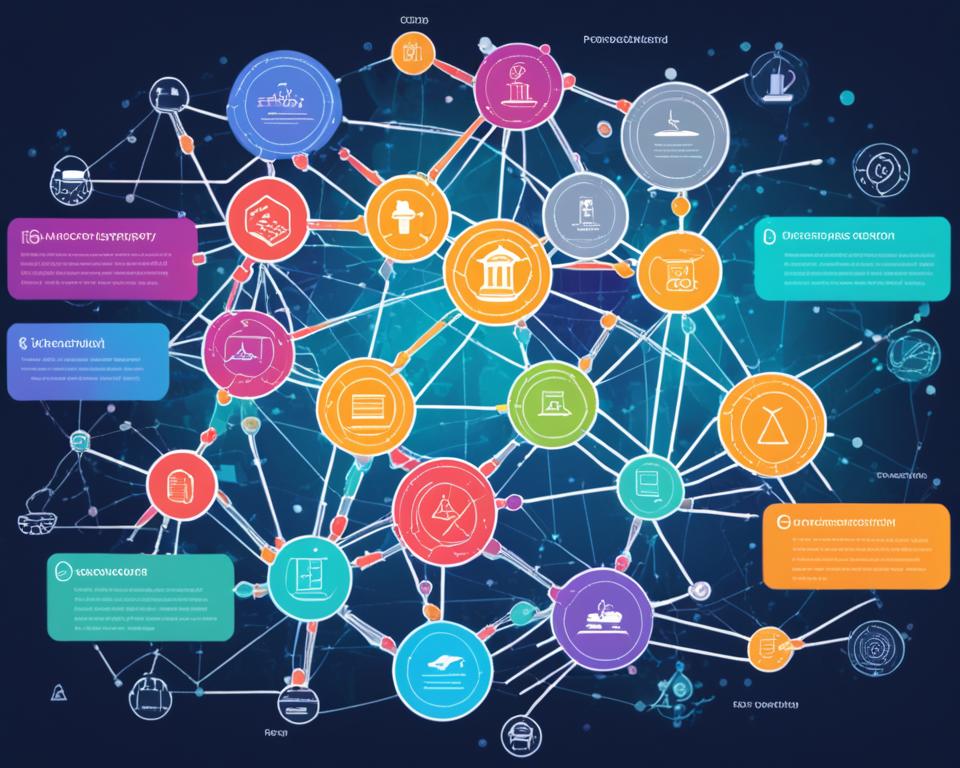Revolutionizing Business: The Power of Blockchain Technology

In the ever-evolving world of business, a transformative force has emerged that is capturing the attention of leaders and innovators alike: blockchain technology. This revolutionary digital ledger is poised to disrupt a wide range of industries, redefining the way companies operate and deliver value to their customers.
At the heart of blockchain lies its decentralized nature, a fundamental shift from traditional centralized systems. Unlike traditional databases, blockchain is a distributed network of computers, known as nodes, that collectively maintain and validate the integrity of the data. This decentralized approach not only enhances security but also fosters transparency, as every transaction is recorded across the network, creating an immutable and auditable history.
Underpinning the power of blockchain is the intricate interplay of cryptography and consensus mechanisms. The use of cryptographic techniques ensures the data’s integrity, while the consensus protocol, such as Proof-of-Work or Proof-of-Stake, enables the network to reach agreement on the validity of transactions without the need for a central authority.
The impact of blockchain technology extends far beyond the realm of cryptocurrency and fintech. From streamlining supply chain operations to revolutionizing smart contracts, blockchain’s versatility has the potential to disrupt a wide range of industries, driving innovation and transforming the way businesses operate.
Key Takeaways
- Blockchain is a decentralized, digital ledger that records transactions securely and transparently.
- Blockchain utilizes a distributed network of computers, known as nodes, to validate and maintain the integrity of the data.
- Cryptography and consensus mechanisms are fundamental to the security and reliability of blockchain technology.
- Blockchain has the potential to disrupt various industries, including finance, supply chain, and logistics.
- The decentralized and transparent nature of blockchain can drive innovation and transform the way businesses operate.
Understanding Blockchain: A Revolutionary Ledger
At the core of blockchain technology lies a revolutionary digital ledger that records transactions in a decentralized, secure, and transparent manner. Unlike traditional centralized databases, blockchain is a distributed network of computers, known as nodes, that collectively maintain and validate the integrity of the data.
Decentralized and Transparent
The decentralized nature of blockchain is its defining characteristic. Rather than a single entity controlling the records, the network of nodes jointly verifies and updates the ledger, creating an immutable and transparent system. This peer-to-peer blockchain structure eliminates the need for a central authority, fostering trust and accountability.
Consensus Mechanisms and Cryptography
Blockchain systems employ sophisticated consensus mechanisms and cryptographic techniques to ensure the security and integrity of the distributed ledger. Through a process called mining, nodes in the network compete to validate transactions, reaching a consensus on the state of the peer-to-peer network. This consensus mechanism, combined with advanced cryptography, safeguards the immutability of the blockchain, making it highly resistant to tampering or unauthorized modifications.

Blockchain: Disrupting Industries
The blockchain revolution is not limited to the realm of cryptocurrency; it is poised to transform a wide range of industries, redefining the way businesses operate and deliver value to their customers. From the fintech sector to the intricate world of supply chain and logistics, blockchain technology is paving the way for unprecedented levels of efficiency, transparency, and trust.
Cryptocurrency and Fintech Innovations
The rise of cryptocurrency and fintech innovations has been one of the most visible applications of blockchain technology. By enabling secure, decentralized, and transparent financial transactions, blockchain is revolutionizing the way we think about money, banking, and financial services. From cross-border payments to lending, blockchain-based solutions are streamlining processes, reducing costs, and increasing accessibility to financial services for individuals and businesses alike.
Supply Chain and Logistics Optimization
In the realm of supply chain and logistics, blockchain is making waves by enhancing transparency, traceability, and efficiency. By incorporating smart contracts and decentralization principles, businesses can now track the movement of goods, manage inventory, and ensure the authenticity of products throughout the supply chain. This not only improves supply chain visibility but also reinforces trust and accountability, ultimately leading to more efficient and sustainable logistics operations.

Conclusion
As you have seen, blockchain technology has emerged as a transformative force, revolutionizing the way businesses operate across various industries. By leveraging its decentralized, transparent, and secure architecture, organizations can streamline their processes, enhance trust, and drive innovation.
The blockchain revolution has the potential to reshape the future of business, with applications spanning from cryptocurrency and fintech to supply chain and logistics optimization. As the technology continues to evolve, businesses that embrace this transformation will be well-positioned to stay ahead of the curve and capitalize on the future of digital business.
The time is now to explore the vast potential of blockchain and unlock the new era of innovation and efficiency. By staying informed and adaptable, you can position your organization to thrive in the rapidly changing digital landscape and unlock unprecedented opportunities for growth and success.




